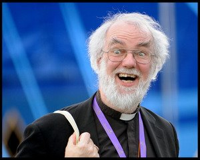Unless a grain of wheat falls to the ground and dies, it remains a single grain. (John 12:24)
There is something so remarkable, I think, at the way Easter falls at this time of year, when we move from the darkness of winter to the brightness of spring.
Because let’s face it, once the brief beauty of the snow has passed, winter is a dour and dark and cheerless time. It is cold and wet. The hours of daylight are short, and there are many days which are overcast and gloomy. The trees stand bare and lifeless. And the mood of the earth is one that we too might share. February is a miserable time.
And then March moves into April. Still cold, and often windy, the sun may shine. In the midst of showers there is bright sunlight. Shoots emerge from the ground. Leaves form on the trees, and the grayscale around us becomes punctuated with colour: a little green, the yellow of daffodils, the pinks of early blossoms.
As, during Lent, we do without this or that, the loss of colour and warmth which has been forced upon us begins to draw back. Sunlight, warmth, colour, and the freshness of the spring breezes.
Here in nature - even in the nature of our lit streets and our centrally heated homes - here in nature is a vivid parable of the mystery of our faith.
Drabness gives way to colour, darkness recedes in the sunlight, sorrow surrenders to joy and death gives way to life.
Unless a grain of wheat falls to the ground and dies, it remains a single grain, but if it dies, it yields a rich harvest.
There is no gain without pain. We must travel through darkness to light, through sacrifice to reward. We must give in order to receive. We must surrender our lives in order to gain them.
In this final fortnight of Lent - what used to be called Passiontide - this is the overwhelming message, written into creation itself, fulfilled in the life, death and resurrection of Christ and shared in our own lives: it is death which leads to fulness of life, and as we share in His death, so He gives us His life.



